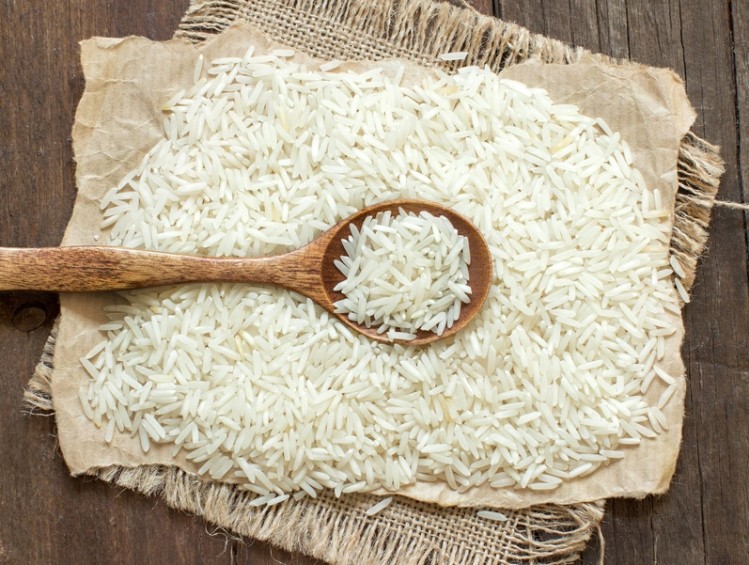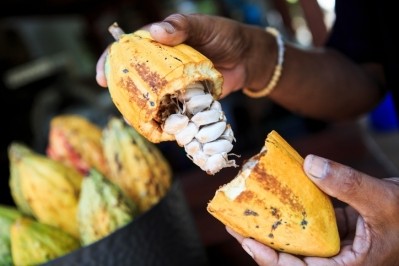‘We can achieve a more sustainable rice crop’: Mars, Ebro join forces to advance sustainable rice sourcing

Spanish rice-to-pasta group Ebro is participating via its local subsidiary, Herba Bangkok. The multinational food makers are working alongside German sustainable development service provider Deutsche Gesellschaft für Internationale Zusammenarbeit (GIZ) and the Thai Rice department in an initiative that they believe will improve the economic viability of 1.200 Thai rice producers as well as helping to mitigate climate change in Roi Et province.
The Sustainable Hom Mali Rice Project will be implemented for two-and-a-half years, between 2018-2020. It aims to support 1,200 Thai rice growers from each of the 12 community rice centres in Roi Et province in the production of 3,500 metric tons of Hom Mali rice.
Expanding support of sustainable rice
Sineenart Chuichulcherm, global commercial director of Mars Food, said the project is part of Mars’ broader ambition to improve the sustainability of rice production. The company runs other schemes working with local farmers in areas such as Pakistan.
“This initiative is part of Mars Food’s journey to source rice from farmers working towards the Sustainable Rice Platform (SRP) standard. In 2016, Mars Food reached an important milestone and now all basmati rice is sourced from farmers working towards the SRP standard - representing 10% of our overall rice volume.
“From now on, Mars Food will be working with Herba Bangkok, the Thai Rice Department and GIZ to further the standards outlined by the SRP on Hom Mali rice. We guarantee that we can achieve a more sustainable Hom Mali rice crop in Thailand that benefits all stakeholders – farmers, rice producers, and the environment.”
Ebro Foods added that the collaboration also reflects its own commitment to sustainable development in its rice supply chain.
“For Ebro Foods, this project forms part of our commitment to sustainability in the sector, since Thailand plays a major role in the Group’s rice supply chain. We firmly believe that the best way to achieve sustainability in the sector is through alliances, and we have such strong partners with Mars Food, GIZ, Thai Rice Department, millers and farmers all banding together,” Ignacio Yuste Sanchez, Herba Bangkok’s Ebro Foods regional managing director explained.
The Ebro executive stressed the need for large corporations to engage with smallholder farmers to support change.
“Currently a lot of discussions are going on about the sustainability of the rice sectors with focus on the livelihood of farmers, chemical usage, inclusiveness, food security and the overall condition and wellbeing of farmers. These issues are not exclusive to smallholders but focusing on them can drive industry change.”
Delivering ‘numerous interventions’
The collaboration will work with local farmers to assist in the adoption of sustainable standards for rice production.
Dr. Matthias Bickel, GIZ Thailand’s director of Agriculture and Food Cluster said that the Sustainable Hom Mali Rice Project will implement “numerous interventions” to help Thai farmers update their production techniques.
This includes: “Educating farmers on SRP standards and agronomic technologies, giving access to high-quality seeds, enhancing the skills of farmer groups, improving gender equity, adoption of information and communications technology (ICT)-enabled traceability for food safety and quality considerations, and stimulating domestic and international off-takers to procure sustainable rice.”
As well as education and training the partnership will also provide access to finance mechanisms and improve the financial literacy of agriculture cooperatives. This will include a focus on gender inclusion to unlock opportunities for women, Dr. Bickel revealed.
Anan Suwannarat, general director of the Thai Rice Department, stressed the importance of addressing farmer incomes within this context. “Rice farmers are among the lowest earners in the country's agriculture sector. Many Thai rice farmers face rising production costs and fluctuating prices. Under this project, we will join forces in developing a sustainable quality of rice.”
The Rice Department is responsible for the planning and implementation of Thailand’s national rice policy through research and development of rice seed, farming practices, post-harvest and processing and quality standards. Through this project, the body hopes to improve rice quality and yield while cutting production costs.
“It is expected that the project will help the farmers to earn additional income in each community.”

















